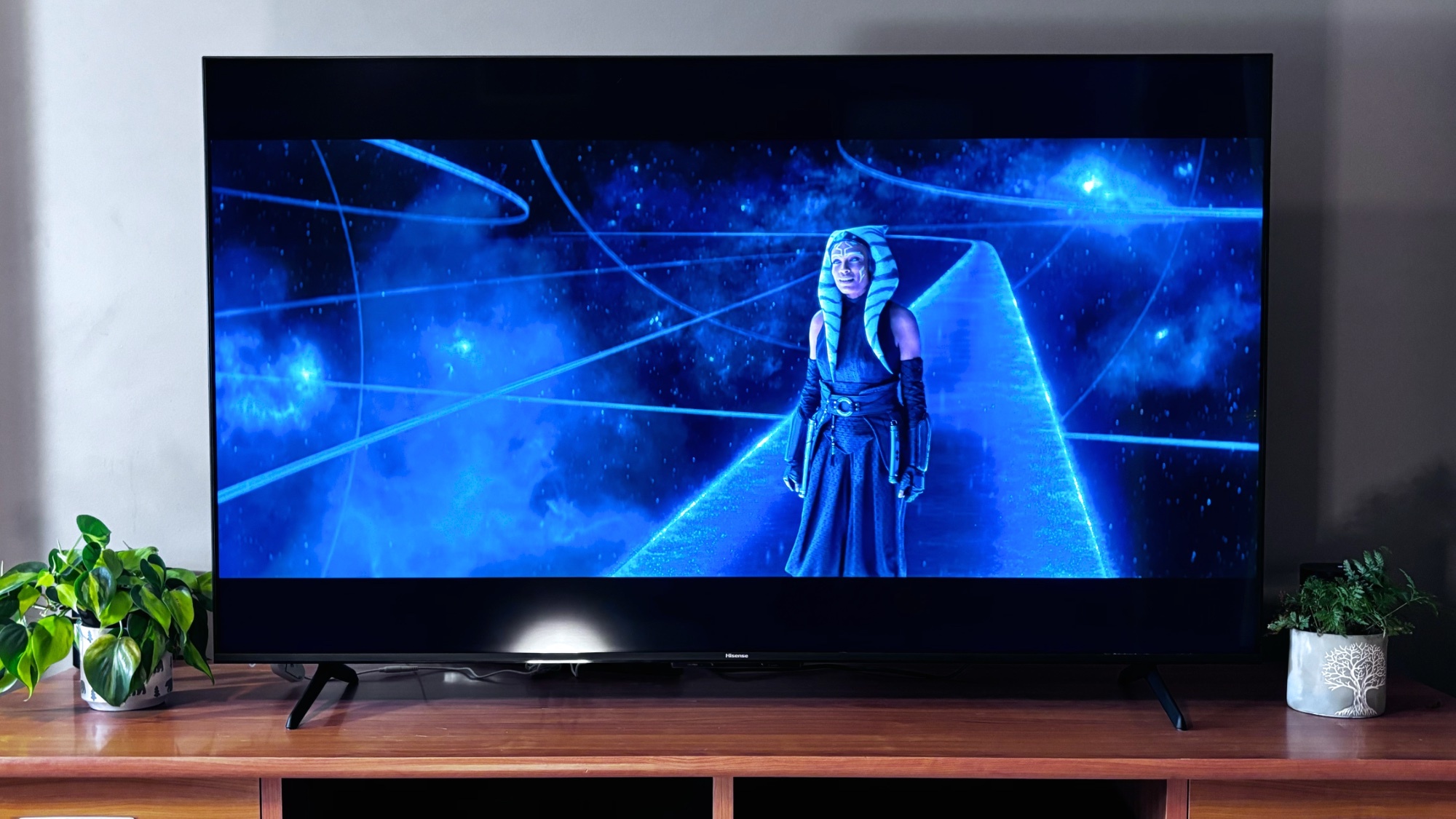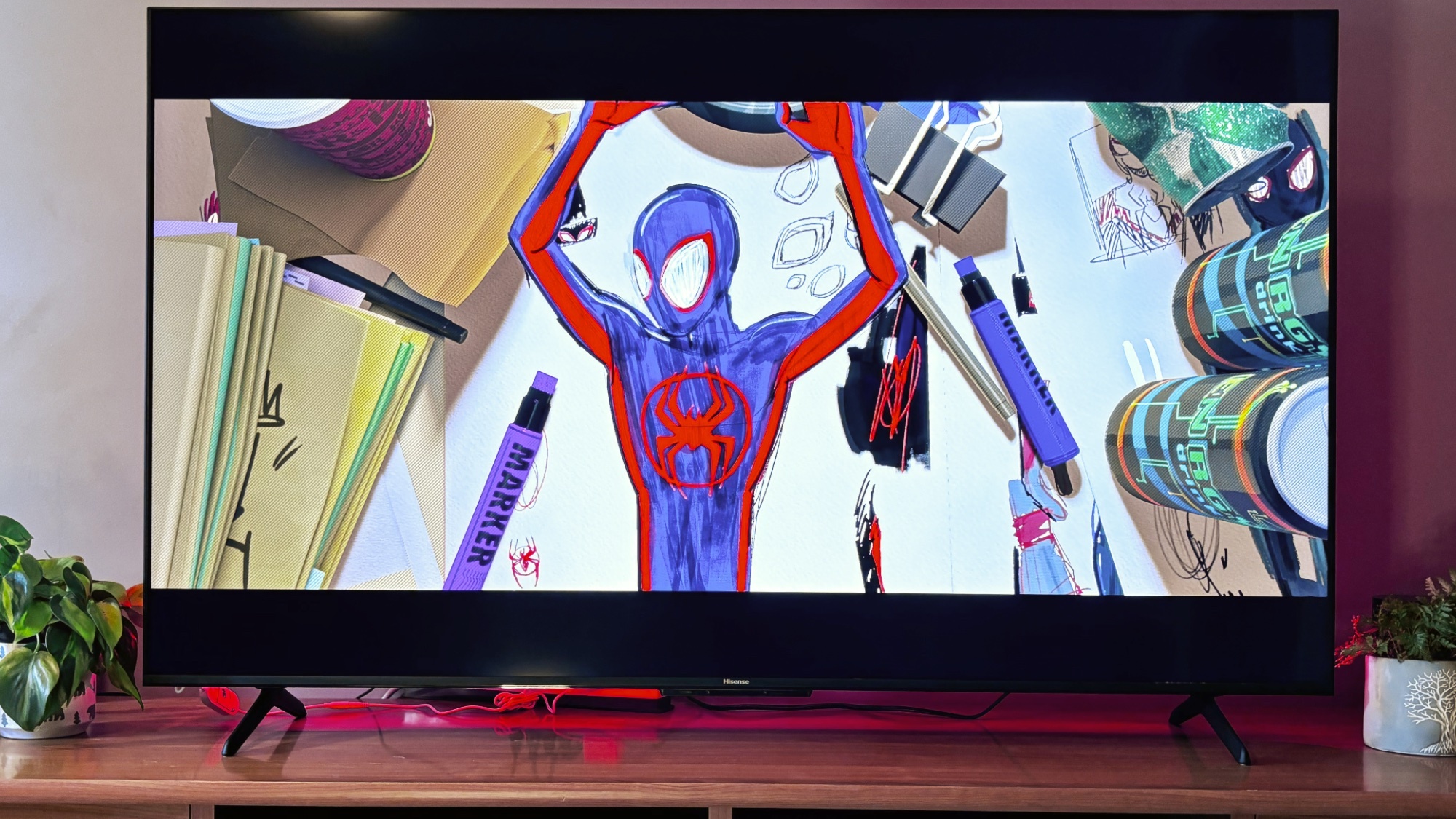
As a TV reviewer, most of the screens I see in a given year are priced well above $1,000. They include some of the best OLED TVs like the LG G3 OLED and Sony A95L OLED as well as some superb QLED TVs like the Samsung QN90C and Samsung QN900C 8K.
But once you spend a lot of time looking at some of the best — and most expensive — options out there, TVs that cost under $500 are usually a bit disappointing.
Thankfully, that wasn’t the case with the Hisense U6K, a 65-inch TV that’s routinely on sale for $499. I put it through its paces this month, watching everything from Disney's Ahsoka to test the surprisingly good black levels to Spider-Man Across the Spider-Verse to test its color saturation, and I’m incredibly impressed by what I saw.
Mini-LED offers better brightness, contrast and more
What helps elevate the Hisense U6 from merely average to one of the top performers is Hisense’s implementation of Mini-LED technology that enables better contrast with above-par black levels and a quantum dot for color saturation.
In my testing I saw much better brightness and contrast compared to similar-costed screens from Samsung and Sony.
Most manufacturers only implement a Mini-LED backlight system in TVs that cost over $1,000, but the Hisense U6 has it and it makes a world of difference. In my testing I saw much better brightness and contrast compared to similar-priced screens from Samsung and Sony.
To that end, with a peak brightness of 525 nits in HDR, brightly lit areas of the screen had a nice pop compared to darker areas. I saw this time and time again in Spider-Man: Across the Spider-Verse and in Cyberpunk 2077: Phantom Liberty on Xbox Series X.
An added bonus, the use of Mini-LED should lower likelihood of the dreaded Dirty Screen Effect (DSE) from non-uniform lighting elements that are all-too-common in TVs of this caliber. If you've ever seen a TV where the black bars at the top and bottom of the screen look grey, that's DSE and it can really be a mood-killer when you just paid good money for a 4K TV.
A budget banger with a few small flaws

Admittedly, the color accuracy — which we measured using an X-Rite i1 Pro spectrophotometer, a SpectraCal VideoForge Pro pattern generator, and Portrait Displays’ Calman calibration software — leaves a little to be desired and can be a little offputting if you don’t go in and tweak it. But even that doesn’t detract too much from the otherwise stellar performance of the Hisense U6K.
The only real issue I had with the TV was its Google TV smart platform which, usually, performs well above average on TVs with similar processors. Unfortunately, Google TV runs a bit more … erratic on the Hisense U6K.
On more than one occasion, there were a few moments when there’d be a delay when jumping from one app to another and times when I’d select something on Amazon Prime Video that Google TV would take me back to Disney Plus.
Other times I'd go to log into Netflix or Disney Plus and be told that my Wi-Fi was disconnected despite having full bars in the settings. Usually this just meant that I needed to reconnect the TV to my network, but these small annoyances marred what was otherwise a really spectacular experience with the U6.
Limited TV funds? Spend it on this
TVs are a luxury good. Yes, there's some genuine benefit to buying higher-end models like longer lifespans and features, but the vast majority of folks just want a TV that looks great when they're watching a movie at the end of the day.
The Hisense U6K is that TV.
If you saw it side-by-side with an LG C3 OLED, you'd pick the OLED every time. But put their sticker prices on them, and you'll see that the U6 will give you 85% of what the LG OLED offers at around 50% of the price. It's an unbeatable TV in terms of price, and it's by far the best under $500 for 2023.







